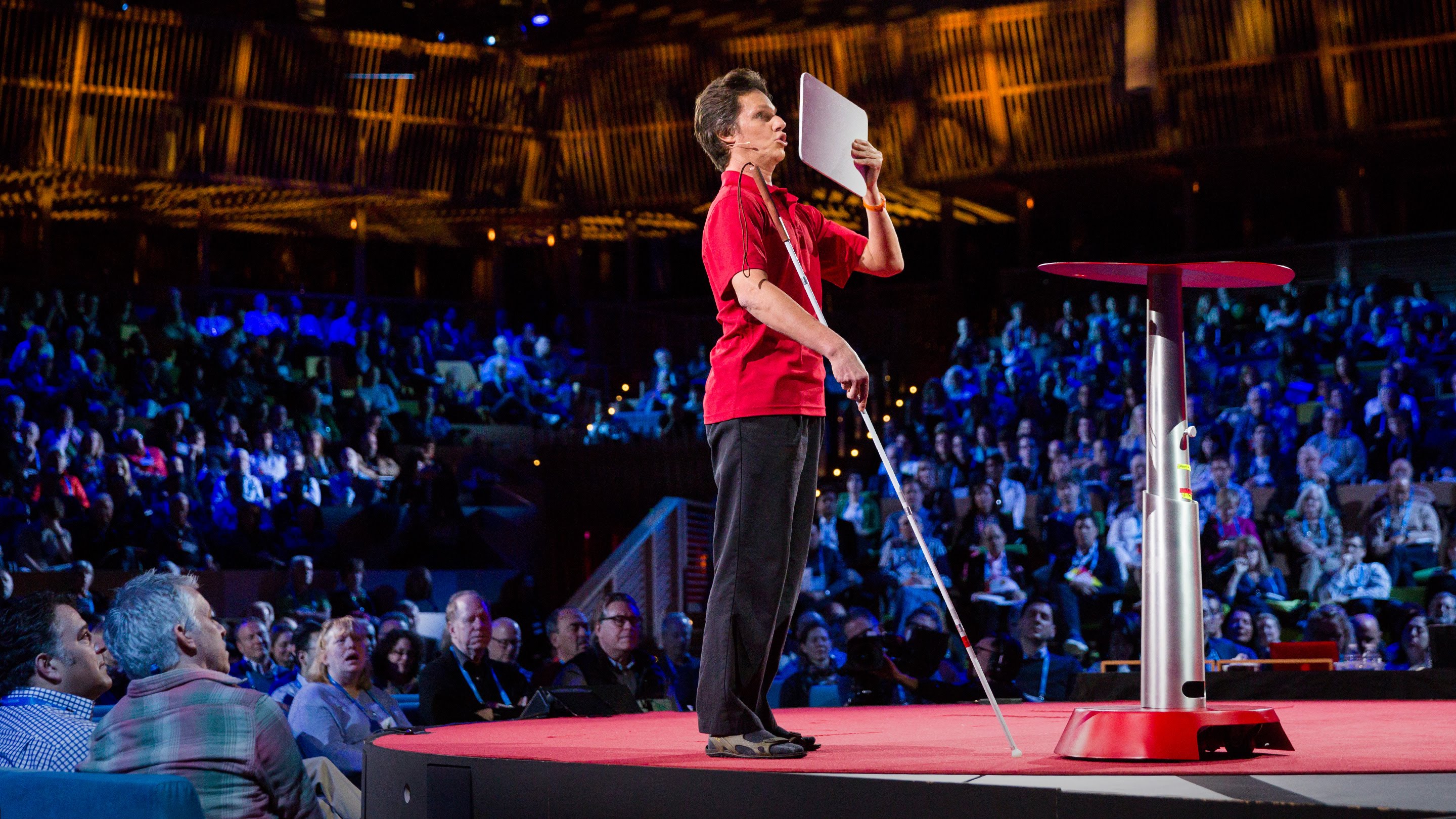A beginner’s guide to navigating with sound.
Daniel Kish has been blind since he was 13 months old, but has learned to “see” using a form of echolocation. He clicks his tongue and sends out flashes of sound that bounce off surfaces in the environment and return to him, helping him to construct an understanding of the space around him. In a rousing talk, Kish demonstrates how this works and asks us to let go of our fear of the “dark unknown.”
Kish now teaches echolocation, mostly to students who are blind. For these students, Kish believes that an echolocation practice can buoy confidence and independence. Kish’s own experience is persuasive—he famously bikes along hilly, car-lined streets—and a growing body of scholarly research has begun to unpack exactly how expert echolocaters do their thing. This research has also backed up the idea that this skill is highly learnable. When researchers at the University of California, Berkeley, asked novice echolocators to use tongue clicks to determine which of the two objects in front of them was larger, the newbies were soon able to do so in a way that the scientists couldn’t attribute to chance.

